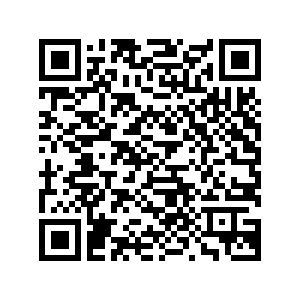by Raheela Nazir
ISLAMABAD, June 27 (Xinhua) -- With Eid al-Adha just around the corner, livestock markets established across Pakistan have been witnessing a great flurry of activity over the last few days, with enthusiastic customers willing to spend a little more than their budget to rejoice the jubilant festival.
Eid al-Adha is one of the most important occasions for Muslims around the globe including in Pakistan, marked by sacrificing of animals, special mass prayers, charities and splendid feasts. To celebrate the festival, the Pakistani government has announced holidays from June 28 to July 1 this year.
Every year, well ahead of Eid al-Adha, a number of cattle markets spring up at various city locations throughout the country, bustling with sacrificial animals including goats, sheep, camels and cows.
According to the latest statistics from Pakistan Tanners Association, Eid al-Adha generated estimated economic activity to the tune of 329 billion rupees (1.15 billion U.S. dollars) in 2022 in the country from sacrifices alone, with the amount surpassing 500 billion rupees (1.74 billion dollars) if related economic activities are included.
Talking to Xinhua, Mushtaq Malik, an animal trader at a make-shift animal market in eastern Rawalpindi district, said that a large number of buyers with their families are visiting the market and showing keen interest in sacrificial animals while indulging in hard bargaining and negotiations.
"We raised these animals with love and affection. They (customers) try to choose the best animal to sacrifice on this special occasion. Some affluent people don't care too much about the prices as their focus is to buy the best," Malik said.
He said that the price of each animal depends on age, weight and health, adding that the animal with the right weight and health would be sold at a higher price, and buyers know all about their options before purchasing the animals.
As the hustle and bustle is gradually increasing at cattle markets, some of the buyers seem rather unhappy about the unrealistically high prices of the animals, complaining that the prices have gone up substantially compared to last year.
Muhammad Zahid, a banker and resident of federal capital Islamabad, said that he has changed his plan to buy a goat this year as it's beyond his budget, saying he would rather share the cost of a cow along with other people.
"Due to skyrocketing inflation in the country, everything has become expensive. My salary remained the same but the prices have gone up ... It is not just inflation, but animal traders are also overcharging customers and selling their animals at unauthorized rates, which further reduces buying power of citizens," Zahid told Xinhua.
While negating the claims of overcharging of sacrificial animals, Yaseen Ahmed, another cattle trader, told Xinhua that other than bearing the cost of food and other necessities, traders also have to pay transportation fees and taxes to transport animals from farms and villages to markets in cities.
"Obviously after paying all this, we have to balance our cost and profit margin. Not only buyers, but traders also suffer from the ongoing inflation," Ahmed added.
Not only have sales of sacrificial animals been witnessing a rise, eye-catching colorful garlands, crowns, anklets and bells are also attracting citizens, especially children and teenagers, to decorate their sacrificial animals.
A variety of stalls have popped up in almost every city of Pakistan, helping people to enhance the beauty of their animals, while giving a major boost to the business of sacrificial animal decoration in the country. ■
